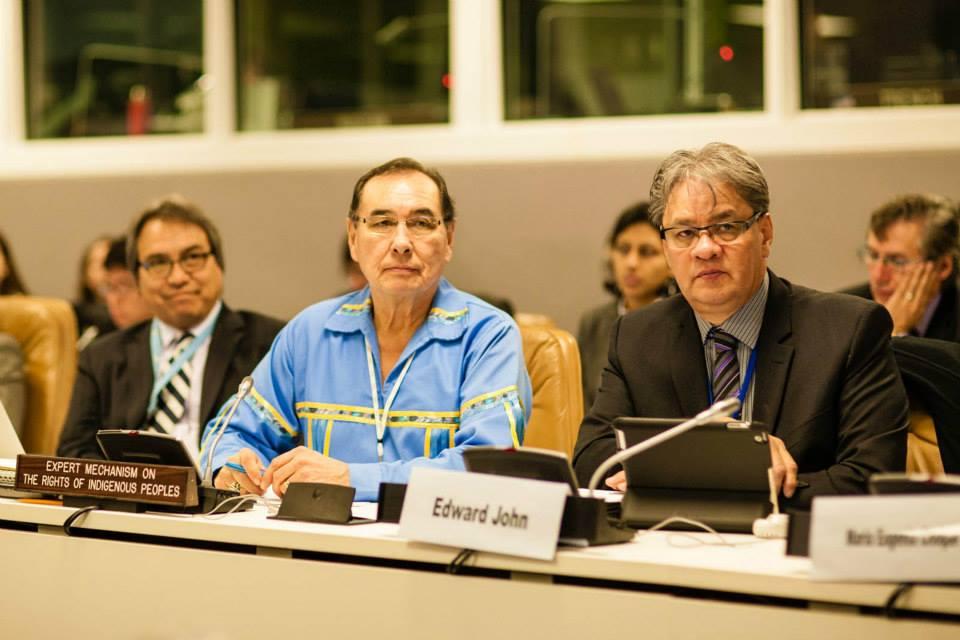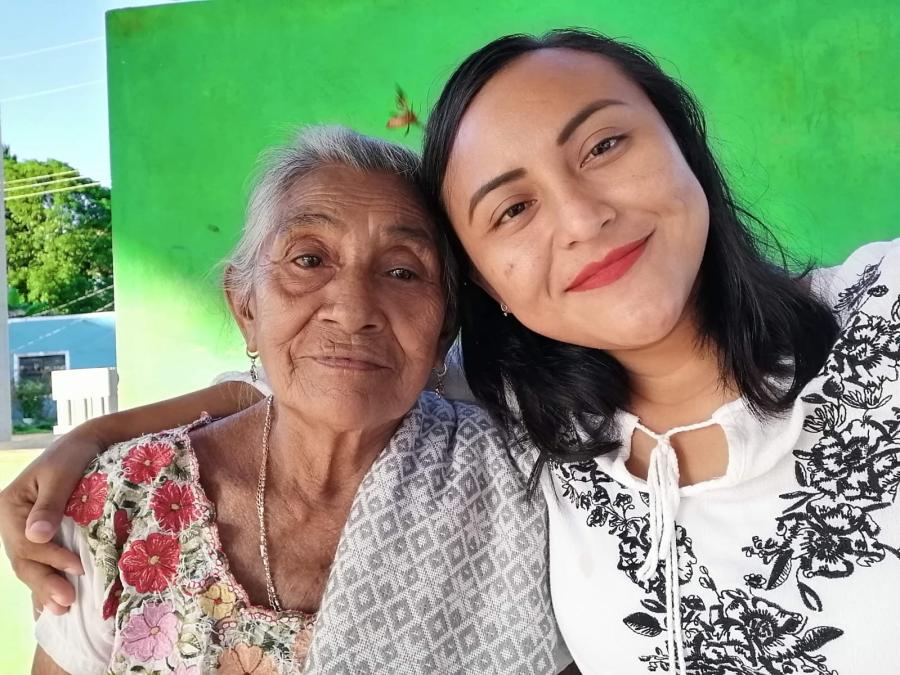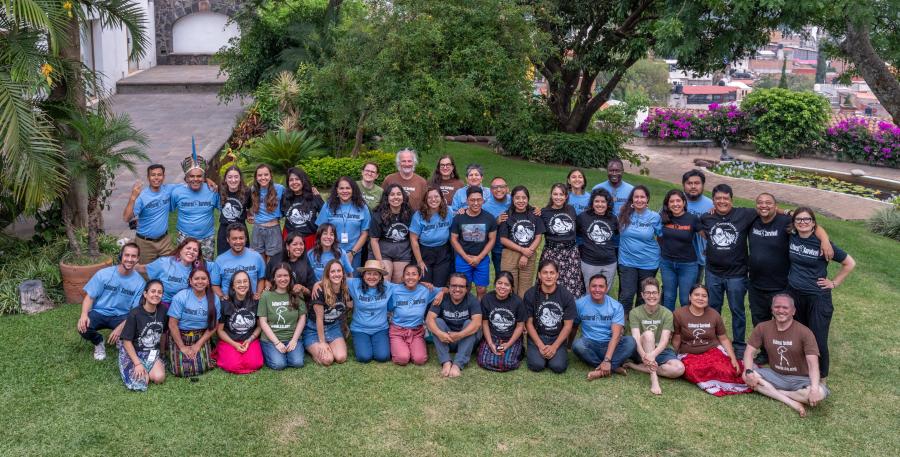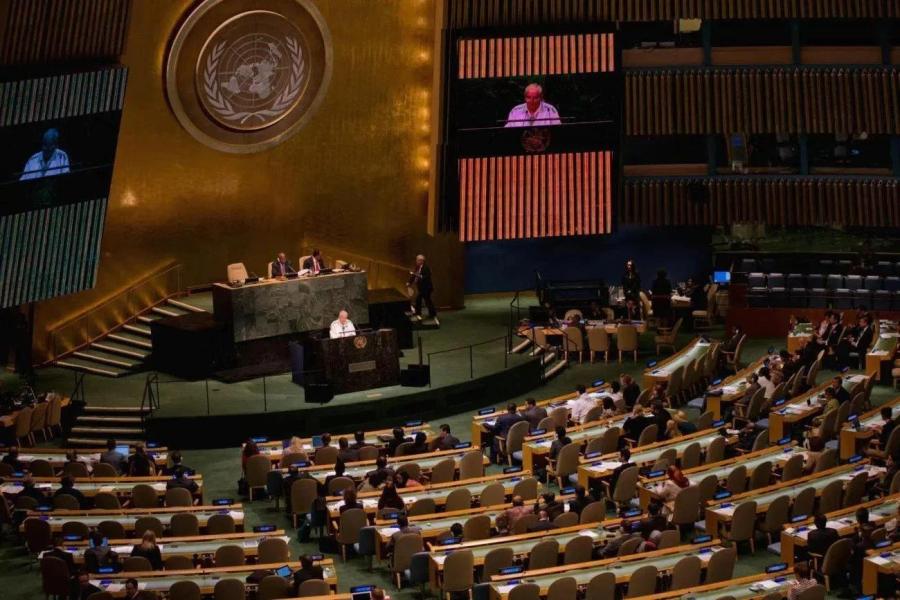
By Jenna Winton
On January 15-17, 2014, the United Nations held the first International Expert Group Meeting on Indigenous Peoples’ Sexual Health and Reproductive Rights. The meeting was held specifically to discuss Articles 21, 22 (1), 23 and 24 of the United Nations Declaration on the Rights of Indigenous Peoples. Among those present at the meeting at the United Nations headquarters in New York were six Indigenous experts from around the world:
- Clive Aspin is Maori from New Zealand. He is a founding member of the International Working Group on HIV and AIDS and a Board Member of INA, Maori, Indigenous, and Pacific AIDS Foundation.
- Larisa Abrutina is Chukchi from Russia and served as the Vice President for Health of the Russian Association of Indigenous Peoples of the North (RAIPON) and presently is a specialist in the Office of Indigenous Peoples of Chukotka, Office of the Governor and the Government of Chukotka.
- Mirna Cunningham Kain is Miskita from Nicaragua. Being the first female Miskita doctor, with the victory of the Sandinista Revolution she began work in the Ministry of Public Health. When the armed conflict began Ms. Cunningham Kain once again returned to Waspam as a community health organizer, and later, to become the first female Miskita governor of the autonomous region’s regional government. She was a member of the Permanent Forum on Indigenous Issues from 2011-2013 and served as a Chair of the Forum from 2011 to 2012.
- Jessica Dansforth is the founder and executive Director of the Native Youth Sexual Health Network. She is also the National Youth Coordinator at the Canadian Aboriginal AIDS Network. Currently she is a board member of Women on Web/Women on Waves and SisterSong: Women of Color for Reproductive Justice.
- Agnes Leina is the founder and executive director of I’llaramatak Community Concerns. She has worked for the past eight years as a women human rights activist, fighting all forms of discrimination against women, at the regional, national and international levels.
- Tuku Talukder is from the Chakma Community in the Chittagong Hill Tracts of Bangladesh. She is the Executive Director of the NGO Himawanti. She is involved with the NGO Green Hill and with several networks, such as Chittagong Hill Tracts Women Organization’s Network and Women Against Violence in Elections Advisory Group.
Experts addressed subjects concerning sexual health unique to Indigenous communities. Among others, subjects discussed were vulnerability to HIV infection, harmful traditional practices, coming of age ceremonies, sexual violence, and the effects of racism on Indigenous sexual health. The sexual health and reproductive rights of Indigenous Peoples are challenged by underlying social and economic determinants including poverty, lack of education, loss of traditional lands and languages, institutionalized racism, and sexual violence.
Indigenous women all over the world suffer from sexual violence. According to the 2009 State of the World’s Indigenous Peoples, Indigenous women are 2.5 times more likely to be raped or sexually violated than women in general in the United States. This is most likely undercounted as many Indigenous women believe they will be met with indifference, inaction and are often blamed for the incident by authorities.
On the gap in maternal health, rates of child mortality are significantly higher among Indigenous Peoples compared to the non-Indigenous populations. Child mortality rates for children years 1-4 years-old in 2005 were twice as high for Native Americans than for the total population in the United States. This trend is also seen in Australia, New Zealand, Canada, and Latin America.
One of the issues contributing to poor health service reaching Indigenous populations is the mistrust of health services. Clive Aspin discussed how this issue affects the spread of HIV, “Many of these factors contributed to high levels of mistrust of health services which in turn appears to be a major contributing factor to the high rates of late testing for HIV among Indigenous Peoples and the subsequent poor health outcomes. Factors associated with vulnerability included: childhood sexual abuse had been experienced by women, high levels of stigma and discrimination experienced by Indigenous MSM, poor access to services, and high levels of injecting drug use among Indigenous populations.” Aspin stated the importance of creating a cultural sensitive atmosphere for health care. “Indigenous Peoples and communities need to have access to supportive education and testing environments which recognize and respect Indigenous cultural values.”
Other recommendations suggest active discouragement of harmful practices, such as Female Genital Mutilation (FGM), should also be an integral component of primary health care. In nine countries 85% of women undergo FGM. “Prevalence rates vary greatly according to geographical location, but national boundaries are not as important as other factors such as: education, socioeconomic classes, ethnic identity,” said Agnes Leina.
In his statement to the Expert Group Meeting, UN Special Rapporteur on the Rights of Indigenous Peoples, James Anaya, commented on the effects of discrimination in the health care system. “Undoubtedly, stereotypes and discriminatory attitudes toward Indigenous Peoples figure into the poor health of members of their communities. In this regard, Indigenous representatives have informed me that there is an overall lack of health-care professionals who speak or understand local Indigenous languages, which can frustrate basic services delivery and can result in improper diagnoses. Health services are not always provided in culturally appropriate ways....At the same time, I have heard Indigenous people express a strong desire to access educational opportunities that would prepare them for professional health care positions to help close the health service gap resulting from cultural disconnects.”
The UN Declaration on the Rights of Indigenous Peoples states that Indigenous individuals have an equal right to the enjoyment of the highest attainable standards of physical and mental health. Many of the recommendations of the UN Permanent Forum on the Rights of Indigenous Peoples emphasized the urgent need to incorporate adequate cultural perspectives into health policies, programs and reproductive health services for Indigenous populations. In recent years, culturally sensitive reproductive health policies, programs and guidelines have been developed. Some governmental health systems are beginning to understand, respond to and engage more with Indigenous Peoples’ ideas of health and the traditional medicinal knowledge and conceptual context that links their biological, spiritual and emotional lives.
The final report and recommendations of the Expert Group Meeting will be submitted to the thirteenth session of the UN Permanent Forum on Indigenous Issues, in May 2014.
For more information, visit: http://undesadspd.org/IndigenousPeoples/EGM2014SexualHealthandReproduct…



